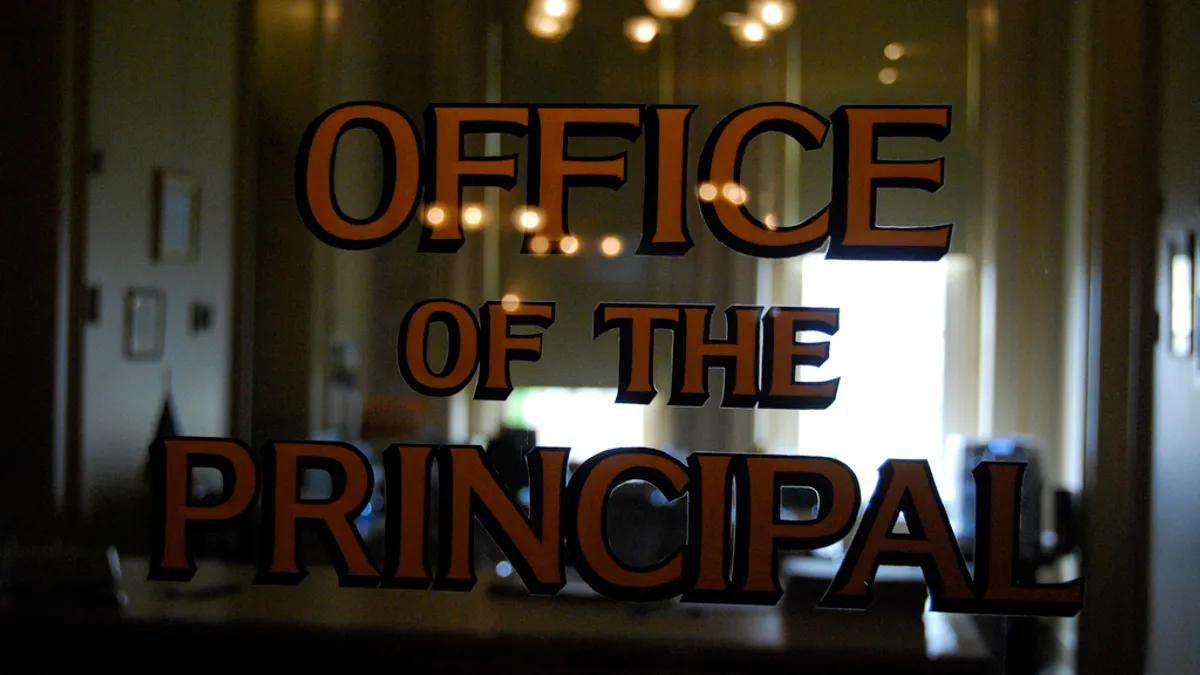Dive Brief:
-
AASA, the School Superintendents Association, and the National Association for Elementary School Principals are collaborating to provide a year-long professional development program for future school leaders. Called the National Aspiring Principals Academy, the training is designed to produce "transformational" school leaders.
- The program looks to provide future principals with theory- and practice-based, in-person and virtual sessions led by nationally recognized leaders in the field. Gail Pletnick, past AASA president and retired superintendent, is one of the the lead instructors.
-
The program is meant to patch the cracks in the school leadership pipeline that have led to principal shortages, and will focus on building leaders rather than just developing school building managers, L. Earl Franks, executive director of NAESP, said in a press release.
Dive Insight:
Researchers are increasingly emphasizing the importance of leadership to creating successful schools, but according to recent research, 35% of principals stay at a school for less than two years and only 11% stay for more than 10. The reasons for leaving include poor working conditions, insufficient salaries and inadequate training and lack of professional development. The National Aspiring Principal Academy seeks to address these challenges.
Other principal preparation programs also seek to fill the principal pipeline with adequately trained, inspired administrators. Drawn from its participation as part of the Wallace Foundation's Principal Pipeline Initiative, Maryland’s Prince George’s County Public Schools offers an array of leadership development programs, which includes an Assistant Principal Induction Program, an Aspiring Leaders Program for Student Success and a Resident Principal Preparation Program to give future administrators as much real-world experience as possible.
A strong principal can set the tone for an entire school. At Fred Lynn Middle School in Woodbridge, Virginia, for example, Principal Hamish Brewer, a tattooed, skateboarding leader, espouses the concept that any student is capable of learning. He relates to students by being authentic, believes student voice is important and creates a school culture of inclusion by encouraging compassion.






 Dive Awards
Dive Awards






